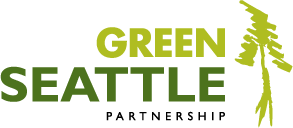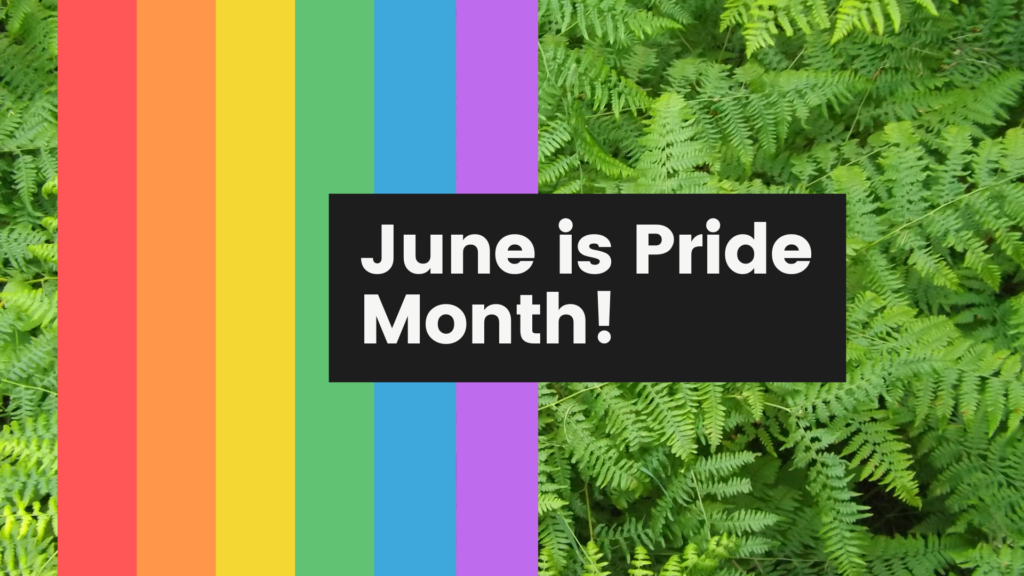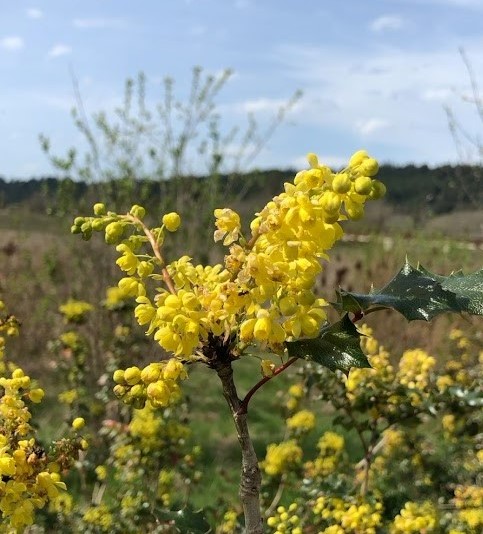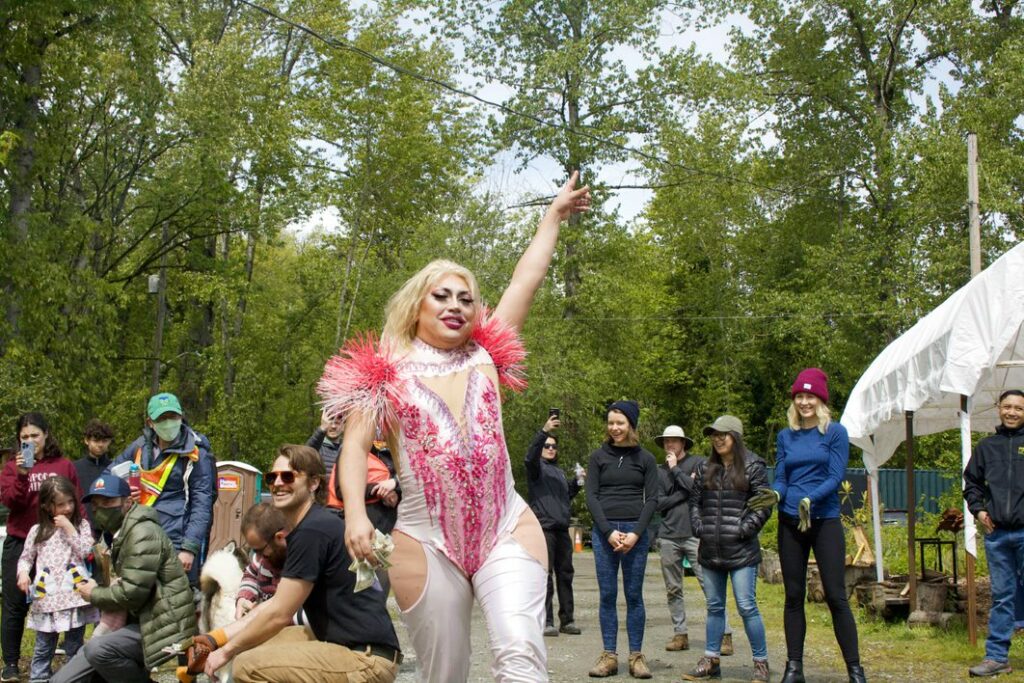Disclaimer: the following article uses the word ‘queer’ as an inclusive term for the LGBTQ+ community. We acknowledge the complicated history of this word. This article was written by a queer staff member at GSP who uses it inclusively, not as a pejorative epithet.
June is Pride Month, and we’ve been thinking about what that means for the Green Seattle Partnership! Queer communities have strong connections to environmentalism. While many view the world in terms of categories, queer ecologists reshaping the way that academics and communities view the science of ecology and the natural world through the theory of queer ecology. Queer communities—especially queer folx of color—across the world are also among frontline communities who are experiencing disproportionate impacts from climate change. Keep reading to learn more about queer ecology, how queer folx experience climate change, and how GSP celebrates queer communities!
Queer Ecology
Humans have a tendency to categorize the world into groups, especially binaries. We view humans as male or female, gay or straight, and plenty more. We also tend to extend those categorizations into nature, which is usually anything but neatly organized. Binomial nomenclature for plants is constantly changing as we learn more about the relationships between genera and species—for instance, the Pacific Northwest plant Oregon grape, ƛələlcac (Mahonia aquifolium) used to be known as Berberis aquifolium, until research showed that the genus Mahonia is genetically distinct. While these categorizations can provide a foundation for communication and research, it’s also critical to remember that the natural world often does not conform to them! That’s where queer ecology comes in.
Queer ecology is a way to expand our understanding of nature by applying queer theory to ecology. It suggests broadening our understanding of the natural world beyond binaries and categories. This perspective creates space for the many ways that nature can be queer. For instance, many species (including red squirrels, boto dolphins, penguins, and primates) exhibit queer behavior. Queer ecology doesn’t impose human sexuality onto the natural world, but instead suggests understanding the world as more than human. Early ecologist Henry Chandler Cowles described ecology as a study in dynamics; building on that definition, queer conservationist Alex Johnson describes queer ecology as “the study of dynamics across all phenomena, all behavior, all possibility.”
Climate Change and LGBTQ+ Communities
While queer ecologists are reshaping the ways we think about nature, climate change is directly impacting queer communities—especially queer communities of color. Queer communities disproportionately experience discrimination that affects access to housing, health care, and employment—all basic resources that are crucial in enabling individuals to respond to environmental challenges. For instance, LGBTQ youth are 120% more likely than cisgender, heterosexual youth to experience homelessness, which is increasingly dangerous as climate change creates harmful heat waves. Queer communities are also more likely to suffer from chronic diseases that often result from adverse environmental conditions (such as respiratory diseases, cardiovascular diseases, and cancer) than cisgender, heterosexual communities. GSP’s work in urban forest restoration helps keep summer temperatures down and reduce pollution, but these communities need much more.
LGBTQ GSP
Last month, GSP worked with Herons Nest, Washington Environmental Council, QPOC Hikers, and Patagonia to host Earth Gay at Herons Nest! Our community celebrated queerness and environmentalism with outdoor drag shows (thanks to performers Melody Lush and Vincent Milay), bird watching, nature walks, environmental art, and stewardship activities. We’re so grateful for our amazing community of queer folx and allies for helping us celebrate the Earth the queer way!
Green Seattle hosts annual Earth Gay events to create an enviro-queer community-building space for folx in Seattle and throughout Puget Sound. These inclusive, family-friendly events are a great way to get outdoors, help keep Seattle’s parks healthy, and enjoy community-building.
While community celebrations and inclusive events are a start, the LGBTQ+ community needs more. The Green Seattle Partnership is committed to continuing to working with and supporting queer communities in any way we can.



